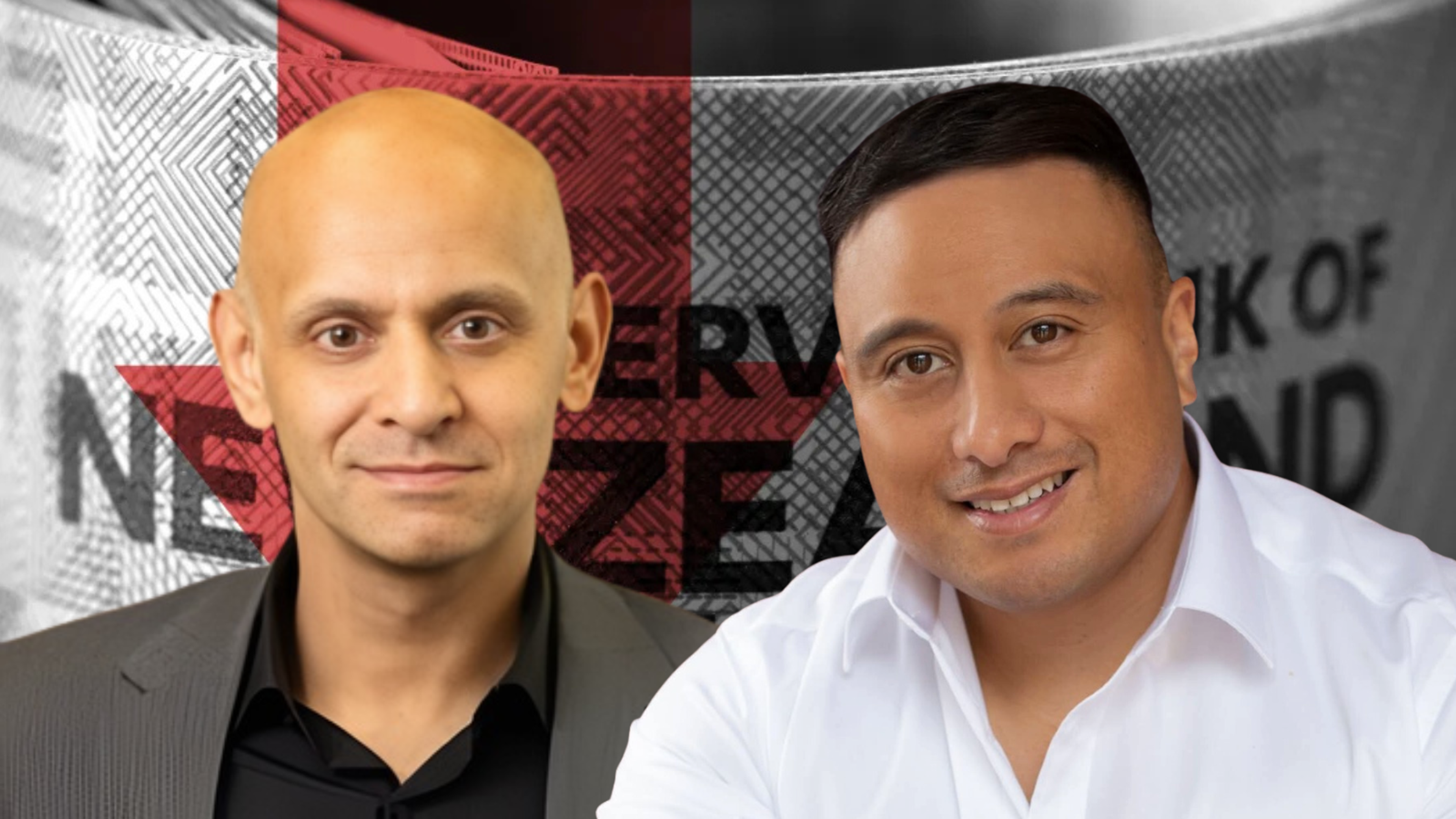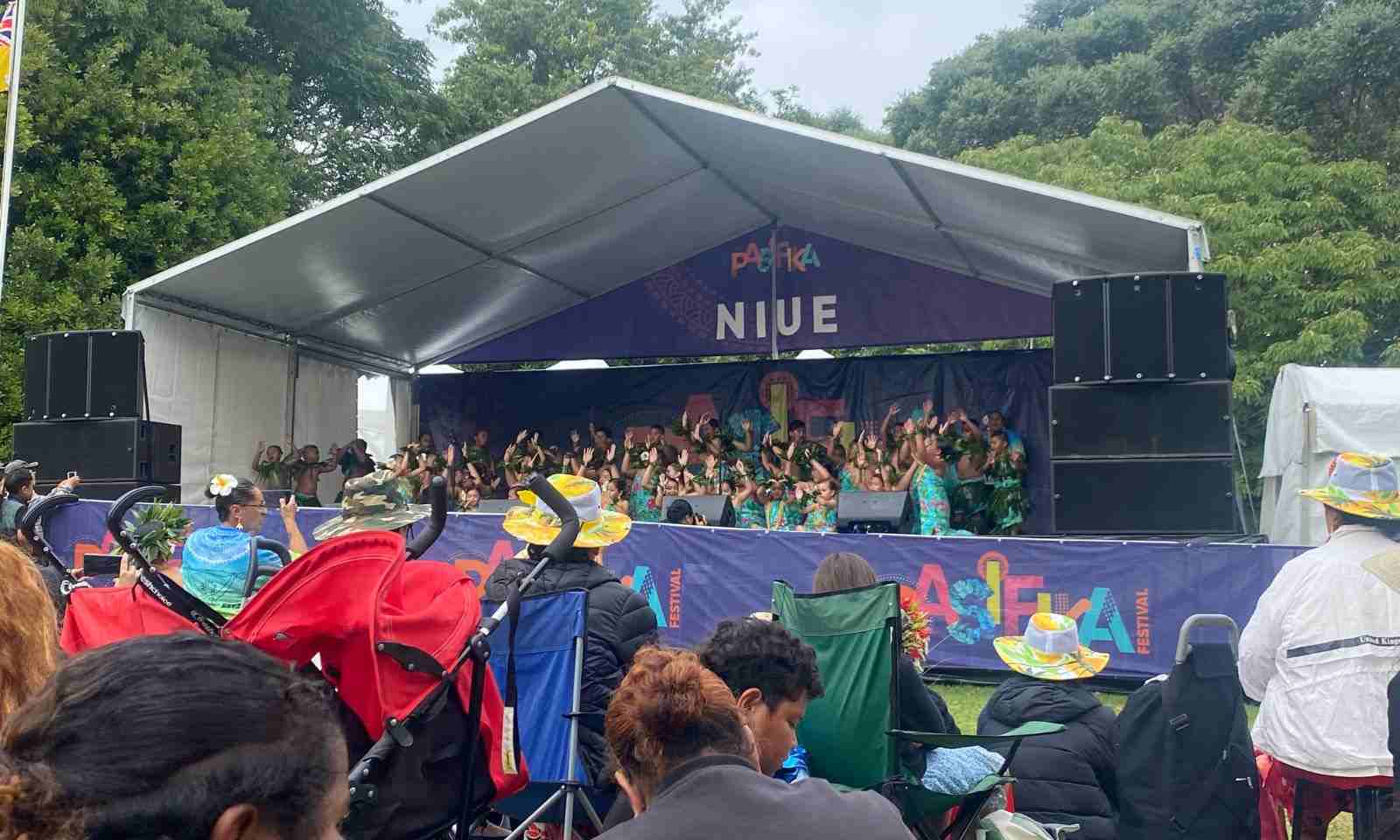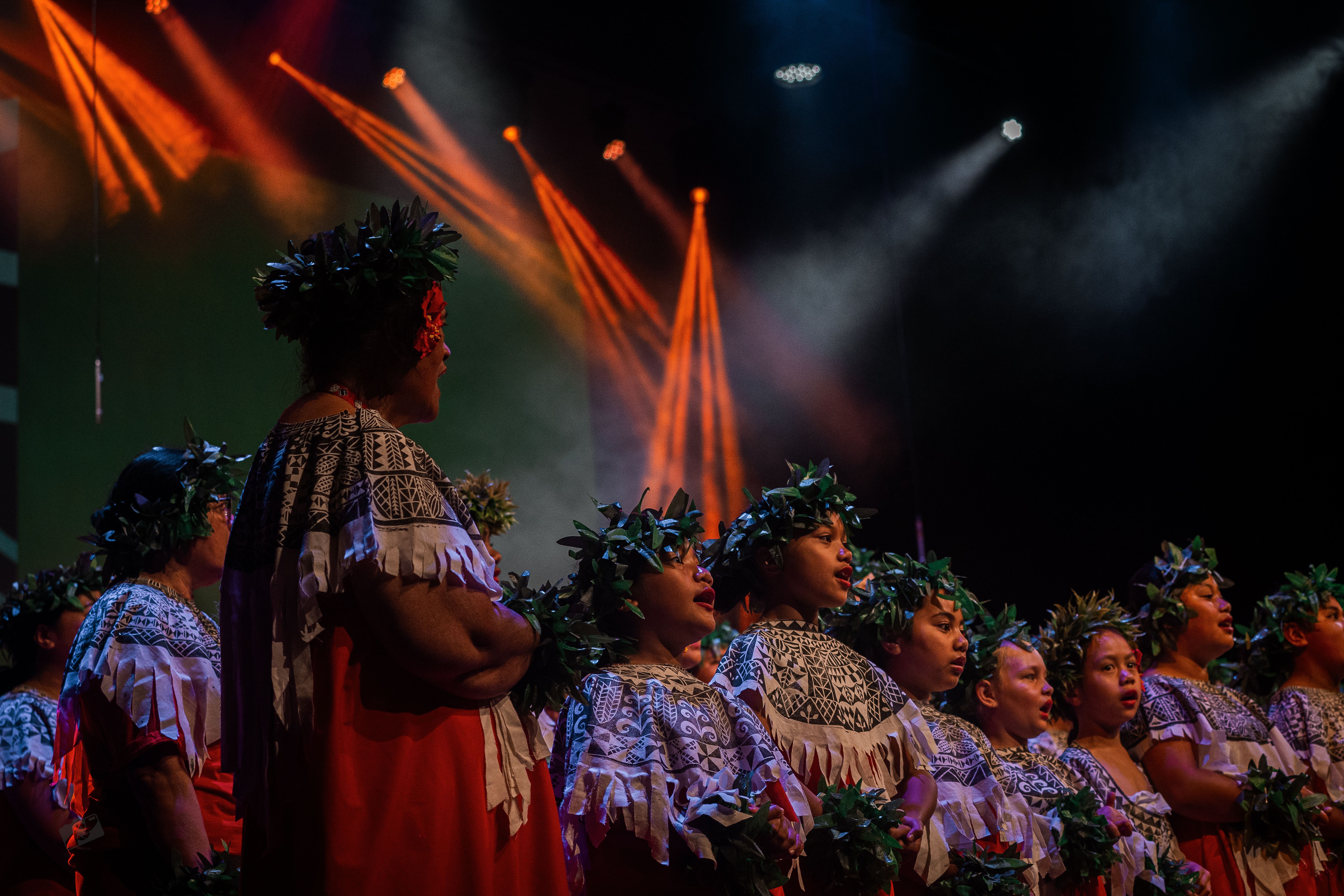

The village of Liku Tamahaleleka perform at the Hologa Niue Festival in Auckland in February this year.
Photo/PMN News
Auckland principal urges preservation of Vagahau Niue amid teacher shortage
With only 12 per cent of Niueans fluent, Karl Vasau stresses bilingual education and community support in fostering deeper cultural identity.



Rising costs hit Pacific families hard as interest rate decision nears

Fiji fast-tracks needle programme as new study shows HIV cases surging at record pace

‘Shot put queen’ Dame Valerie Adams leads Pacific pride at NZ's Halberg Awards 2026


Sāmoa tightens control of district funds with new seizure powers

Rising costs hit Pacific families hard as interest rate decision nears

Fiji fast-tracks needle programme as new study shows HIV cases surging at record pace

‘Shot put queen’ Dame Valerie Adams leads Pacific pride at NZ's Halberg Awards 2026
A bilingual primary school principal in Auckland has warned that the lack of trained Vagahau Niue teachers poses a threat to the preservation of the language across Aotearoa New Zealand.
Karl Vasau, of Rowandale School in Manurewa, says that while there are many Niuean teachers, very few are trained in language instruction.
In a recent interview with Faama Viliamu on PMN Niue, Vasau says the limited number of qualified teachers and students has compounded the challenge of establishing Niuean bilingual units in schools.
“There are lots of Niuean teachers out there, but they are not trained to teach language,” he says.
Vasau argues that, given the current circumstances, trying to “embed” Vagahau Niue into schools is not productive because the language is neither valued nor measured.
He says setting up a Niuean bilingual unit in schools is difficult without having qualified teachers and enough students.
Vasau attended a Niue educators’ retreat, which inspired him to adopt a more positive outlook, ensuring that young Niuean teachers have the opportunity to thrive.
“…from that came a real desire and need for us to all work together on the same page to make sure that we develop or strengthen…save Vagahau Niue,” he told Viliamu.
There are three formal Niuean bilingual units in New Zealand, which are located at Rosebank Road School, Favona School, and Rowandale School. There is also an after-school programme at St Leonard’s that is in the process of becoming a bilingual unit.

Niue Stage at the Pasifika Festival in Auckland. Photo/RNZ/Coco Lance
Vasau says there is an urgent need for collective efforts to strengthen the language, considering that only 12 per cent of the Niuean population speaks Vagahau Niue.
He shared his personal connection to the language, saying that the passing of his father was a poignant reminder of the language’s decline.
”Every time a speaker of Vagahau Niue passes away, they aren’t replaced by another speaker,” he says.
Vasau admits that he was not taught Vagahau Niue and did not embrace it during his childhood, which highlights the dire state of the language.
He hopes to see parents, especially those who do not speak the language, engaged in supporting their children's learning at home. This support could include methods that integrate Vagahau Niue into existing curricula and make learning enjoyable.
“These units hopefully will help teach these children Vagahau Niue and also grow a stronger sense of identity… so that they may desire to embrace Vagahau Niue and learn,” he says.
Vasau says that improving the teaching of Vagahau Niue in schools comes with challenges, including financial constraints. But he remains optimistic about the potential of bilingual units to educate the next generation.
At Rowandale school, many parents believe that if their children spoke Vagahau Niue all day, they might become lost in the learning process. Therefore, finding a good balance is important.
”We use Vagahau Niue to make learning fun, so it doesn’t drive the learning…use Vagahau Niue in a context where and whatever they’re learning, they can see links,” Vasau says.
Vasau says the delivery method and learning context in a bilingual unit are suited best for the children, helping them build confidence and succeed in any language they encounter.
When parents are not fluent in the language, Vasau says there are options that can support both the child and the parents.
To assist parents who do not speak Vagahau Niue, the teaching team at Rowandale School sends children home with tasks aimed at engaging family members.

The village of Alofi, the capital of Niue, perform at the Hologa Festival. /Photo/PMN Digital/Eroti Navuku
For example, children can stick labels on various items around the house along with a little QR code that parents can scan to hear the pronunciation. This is one way to offer experiences that help parents learn Vagahau Niue with their childre.
By working to grow and maintain Vagahau Niue, even in the face of adversity, Vasau says: “A challenge is not impossible.”
He believes that overcoming these challenges is possible through commitment and cooperation in preserving the language.
You can watch Karl Vasau's full interview here.